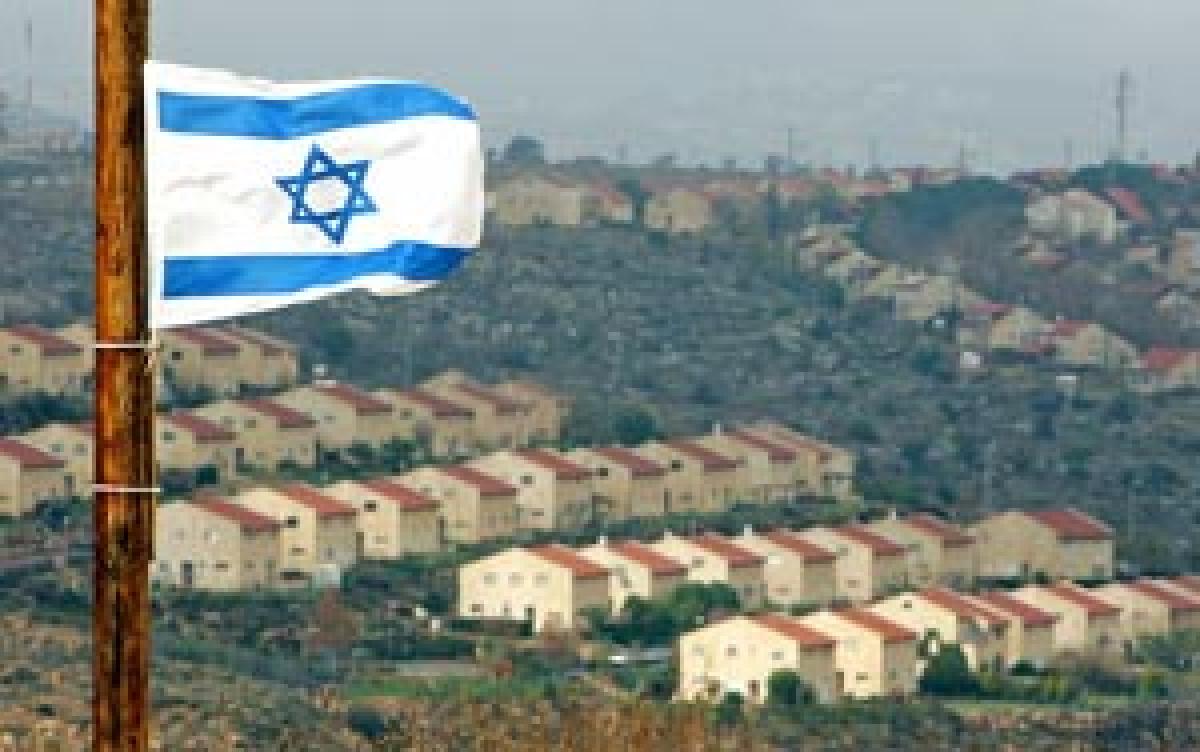Live
- Congress killers of Samvidhan: Modi
- Bejan Daruwalla’s horoscope
- Study warns: Ultra-processed foods may accelerate biological age
- CM pledges more political opportunities to Madigas
- Vizag attracts tourists as much as Kashmir
- Year-Ender 2024 Guide: Home remedies to relieve Period Pain.
- All India crafts mela begins today
- TTD gears up for Vaikunta Ekadasi fete
- Express Yourself
- Rajadhiraaj: Love. Life. Leela
Just In

Ahead of the release last week of a report on the Israeli-Palestinian conflict by the Quartet of Middle East mediators, the word from diplomats was that it would be hard-hitting, especially on Israel and its settlement building.
Jerusalem : Ahead of the release last week of a report on the Israeli-Palestinian conflict by the Quartet of Middle East mediators, the word from diplomats was that it would be hard-hitting, especially on Israel and its settlement building. The United States, the European Union and the United Nations were fed up with Israel's consistent violation of international law, which views all settlements on occupied land as illegal, diplomats said. While Russia, the fourth Quartet member, might be more restrained, Israel was set for a serious ticking off.
Those concerns reached Prime Minister Benjamin Netanyahu's office. Officials briefed that he was determined to talk the Quartet down. He flew to Moscow to see President Vladimir Putin, and met US Secretary of State John Kerry and the EU's foreign policy chief, Federica Mogherini, in Rome. In the end, after weeks of delay, the report was mild in the extreme. Israeli settlement-building was criticised but not called illegal. The prime focus was on Palestinian incitement. One regional analyst described the overall impact as "banal.”
Privately, diplomats raise a host of concerns about Israel's actions: its restrictions on Palestinian movement, security clampdowns they say amount to collective punishment, the demolition of attackers' homes, the blockade on Gaza, and settlements. But in public, there is far more restraint. Many EU member states have good and growing relations with Israel. Like Turkey, which has agreed to restore diplomatic ties with Israel after a six-year hiatus, they see a future of expanding business, trade and energy ties.
Whereas a few years ago Israel mostly had to rely on Germany, Britain and the Czech Republic to defend its interests in the EU, now it can count Italy, Greece, Cyprus, Austria, Hungary and a handful of others among potential allies. It's not only better diplomatic ties and economic levers that have helped Israel counter criticism. The Palestinians have done little to win friends and influence opinion at a time of rising Islamist insurgency across much of the Middle East.
With Palestinian President Mahmoud Abbas, 81, now 11 years into a four-year term and showing no sign of holding elections, there is frustration over the democratic deficit. Polls show 60 per cent of Palestinians want Abbas gone. There are also stark divisions between Abbas's Fatah party and the Islamist group Hamas, which controls Gaza. As long as Palestinians are unreconciled, talk of negotiating a two-state solution with Israel will remain remote at best.
By Luke Baker

© 2024 Hyderabad Media House Limited/The Hans India. All rights reserved. Powered by hocalwire.com







